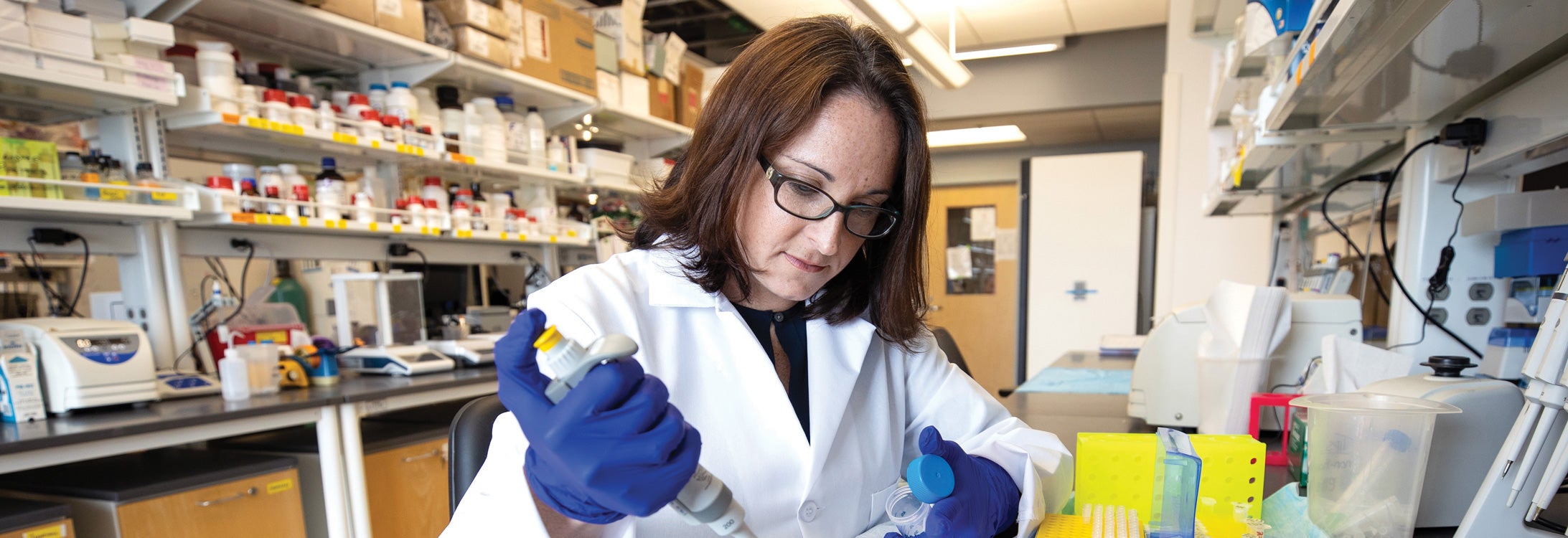Clues to dementia
Breakthrough nets dollars to study fatty acid role in preventing dementia
Neurodegenerative diseases – such as Alzheimer’s, Parkinson’s and ALS – are a leading cause of morbidity and mortality among older adults.
Consuming docosahexaenoic acid, an omega-3 fatty acid found in fish and fish oils, reduces the risk of these diseases. However, not much is known about how DHA gets to the brain and why taking fatty acid benefits some more than others.
Now, a breakthrough by ECU researcher Jessica Ellis shows a specific enzyme – Acyl-CoA synthetase 6 – is critical for enriching DHA in the brain.
“We set out targeting this enzyme, hoping to land where we actually landed.” said Ellis, an assistant professor in the Department of Physiology at the Brody School of Medicine. “Then we were like, ‘OK this is it, this is it, we found it. This is one of the main missing components.’”
The discovery – published by the Proceedings of the National Academy of Sciences last December – provides critical insight into brain DHA metabolism that could have broad health implications. And in June, the Dementia Alliance of North Carolina awarded Ellis $100,000 to further her research.
“We’ve shown that the animals that lack this enzyme have various motor-related impairments, they have impairments in memory and learning, and that they develop pathology in their brain over time, which is indicative of early onset aging,” said Ellis. “It seems DHA is critical for numerous biological functions within the brain that allow us to move properly, remember well and essentially age well.
“We’re proposing to take our model where we have less DHA and indicators of memory impairment to better understand the molecular mechanisms that are causing that and that can facilitate drug targeting, therapeutic targeting to try to prevent or alleviate dementia,” Ellis said.
Scientists have known the potential cognitive benefits of fish oils for some time, but they knew little about why or how it was effective for some people and not for others.
“All of these people are taking these supplements, but it’s not always super effective,” Ellis said. “Because there’s a lot of things that have to happen between our mouth and our brain, one of the things we were interested in understanding was what are the critical enzymes that allow that fat to get into the brain. So we discovered one of them, and it’s responsible for about 50 percent of the DHA that’s in the brain, which is a lot.”
